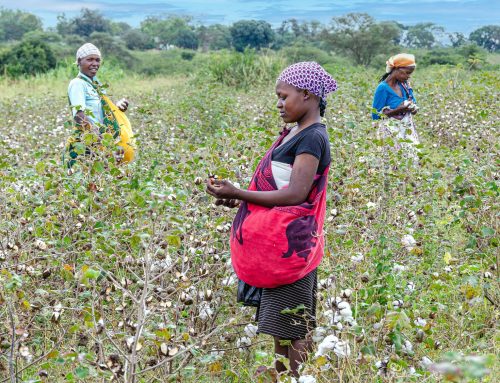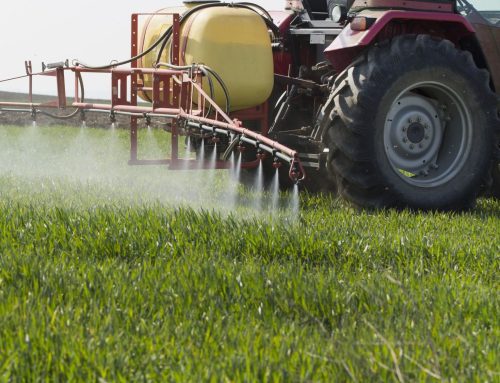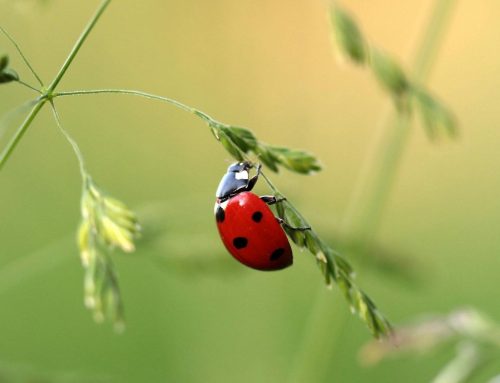By Rina Guadagnini, Project Officer, PAN UK
PAN UK was recently able, for the first time, to bring together our partners currently working on sustainable cotton projects in Benin (OPEPAB) and Ethiopia (PAN Ethiopia) as we travelled to Nagpur in India to attend the Organic Cotton Summit 2019. For some members of the team, who all work tirelessly to better the livelihoods of local cotton farmers, it was their first time out of the country.
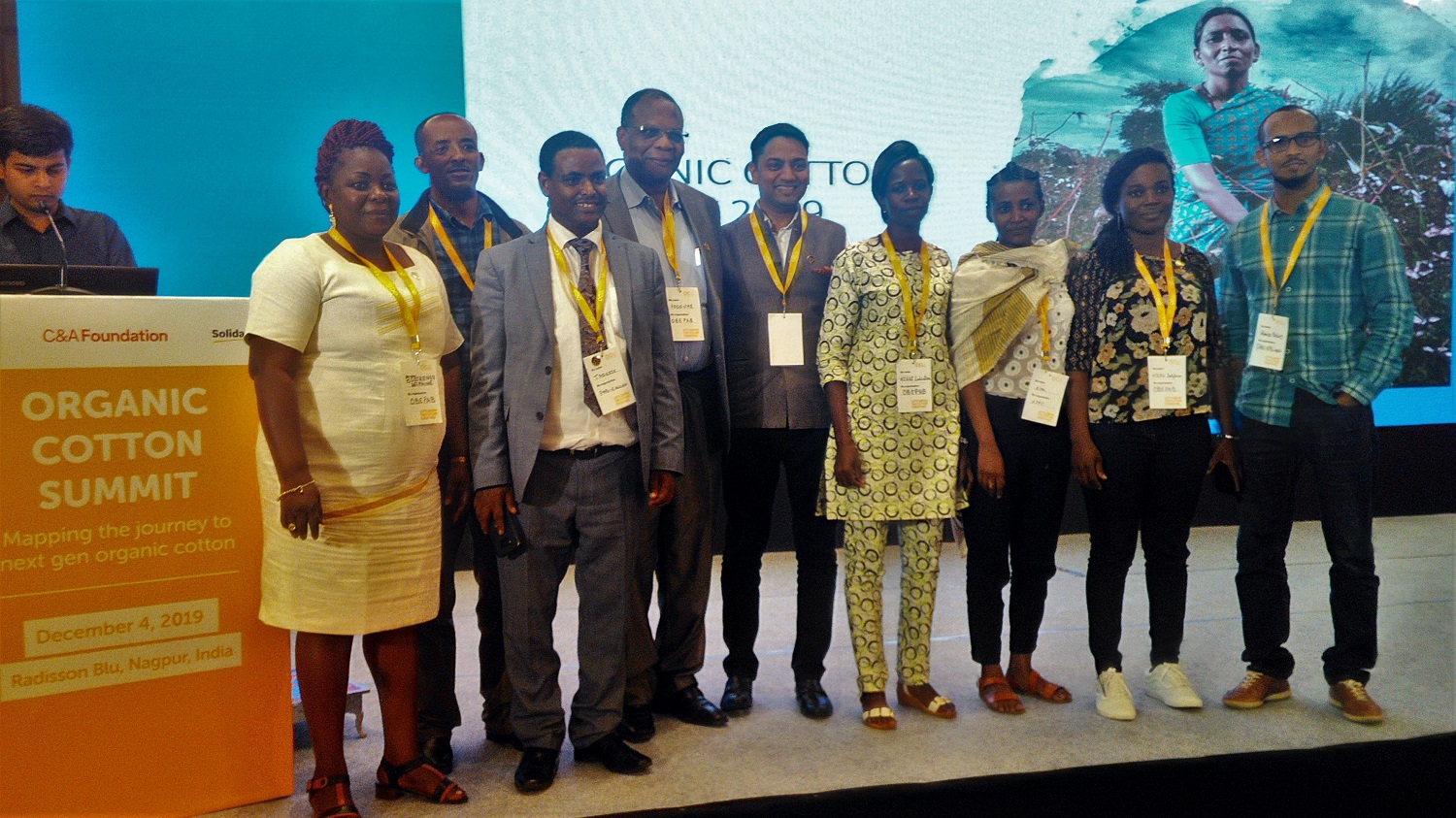
Members of OPEPAB and PAN Ethiopia at the Organic Cotton Summit in Nagpur, India, 2019. Credit: PAN UK
Exchanging ideas at the Organic Cotton Summit
For our partners in Ethiopia, who have trained thousands of cotton farmers on sustainable farming methods in Farmer Field Schools and have managed the certification process of the first 200 organic cotton farmers in the country, the Summit was an opportunity to see beyond the cotton field and meet with global cotton supply chain representatives, brands, sector platforms and other NGOs.
“Panel discussions involved a range of professionals at different levels of the cotton value chain, leading to vibrant discussions on the existing situation, challenges and the future of organic cotton production”. Atalo Belay, Program Coordinator, PAN Ethiopia
The OPEPAB team were able to share the incredible progress they have made in empowering women in cotton production in Benin. By helping farmers diversify the crops they grow they have increased farmer food security, and women have also managed to establish nine cooperatives to process shea nuts which they use to make shea butter. Proceeds from sales have established community funds which are used for small loans and medical emergencies.
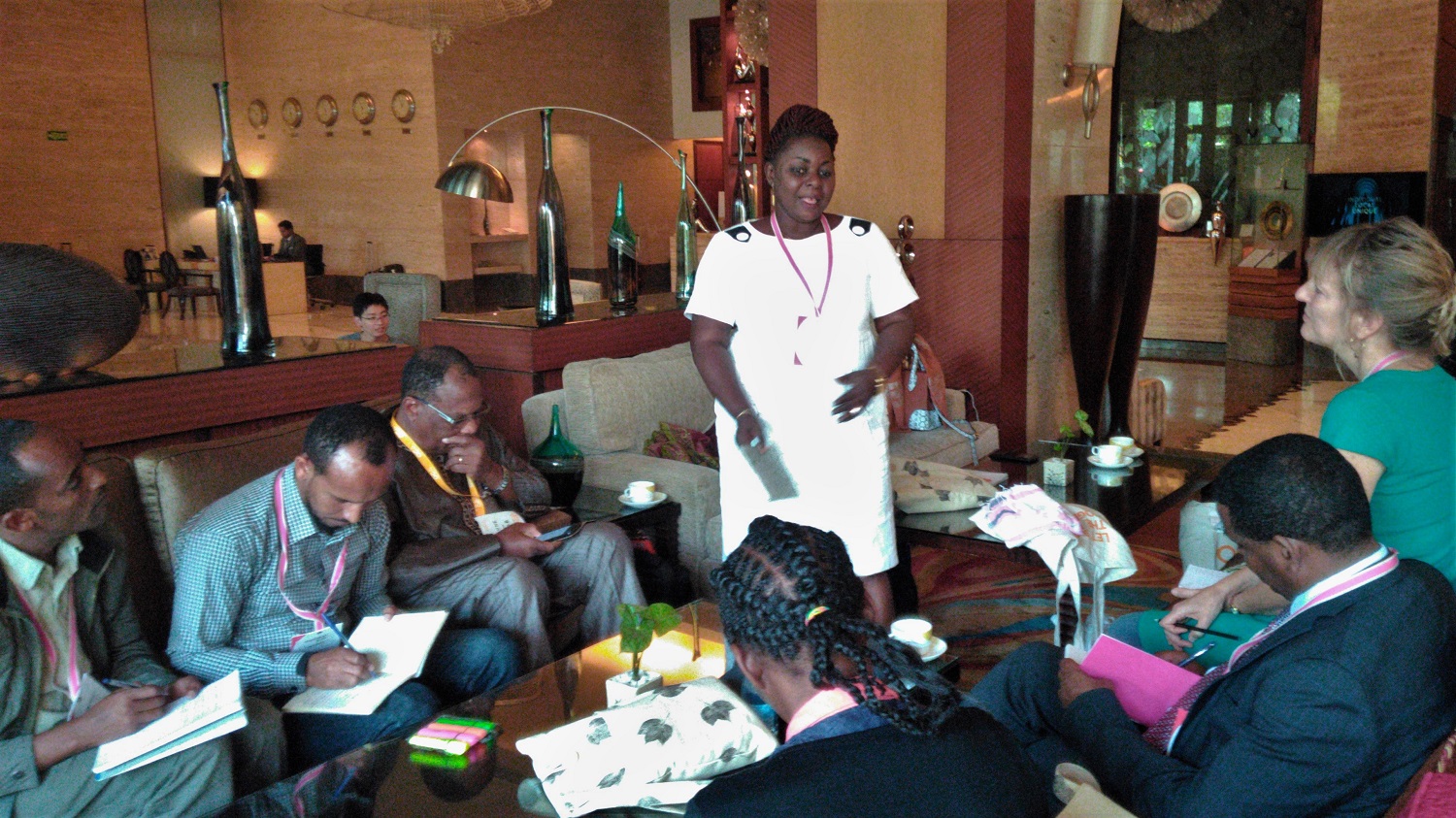
Team members from Benin and Ethiopia sharing knowledge and discussing successes and challenges at the Organic Cotton Summit in Nagpur. Credit: PAN UK
Having the time to share the successes and challenges of working in the cotton sector left both teams inspired to put new ideas into practice on their return home, and PAN UK will continue to encourage and facilitate the exchange of ideas moving forward.
Exploring the cotton production chain
In addition to the Summit, the teams travelled to Indore to meet organic cotton farmers and observe the cotton production chain at Pratibha Syntex Ltd, a sustainability-oriented, vertically-integrated manufacturer of knitted textile products. For the first time they were able to follow the full cycle of cotton garment production, from growing the crop sustainably in the field to the finishing of a piece of clothing in the factory.
Farming without pesticides
The teams first visited local agronomists who demonstrated the production of organic inputs such as bio pesticides, bio fertilisers, compost, green manure and seed treatments. Local organic farmers in Kamkheda also generously shared their experiences, the successes and pitfalls of growing cotton without pesticides. This included showing the teams a field test kit that they use to regularly check that their crops have not been contaminated by genetically modified cotton seeds, to ensure that their cotton is 100% organic.
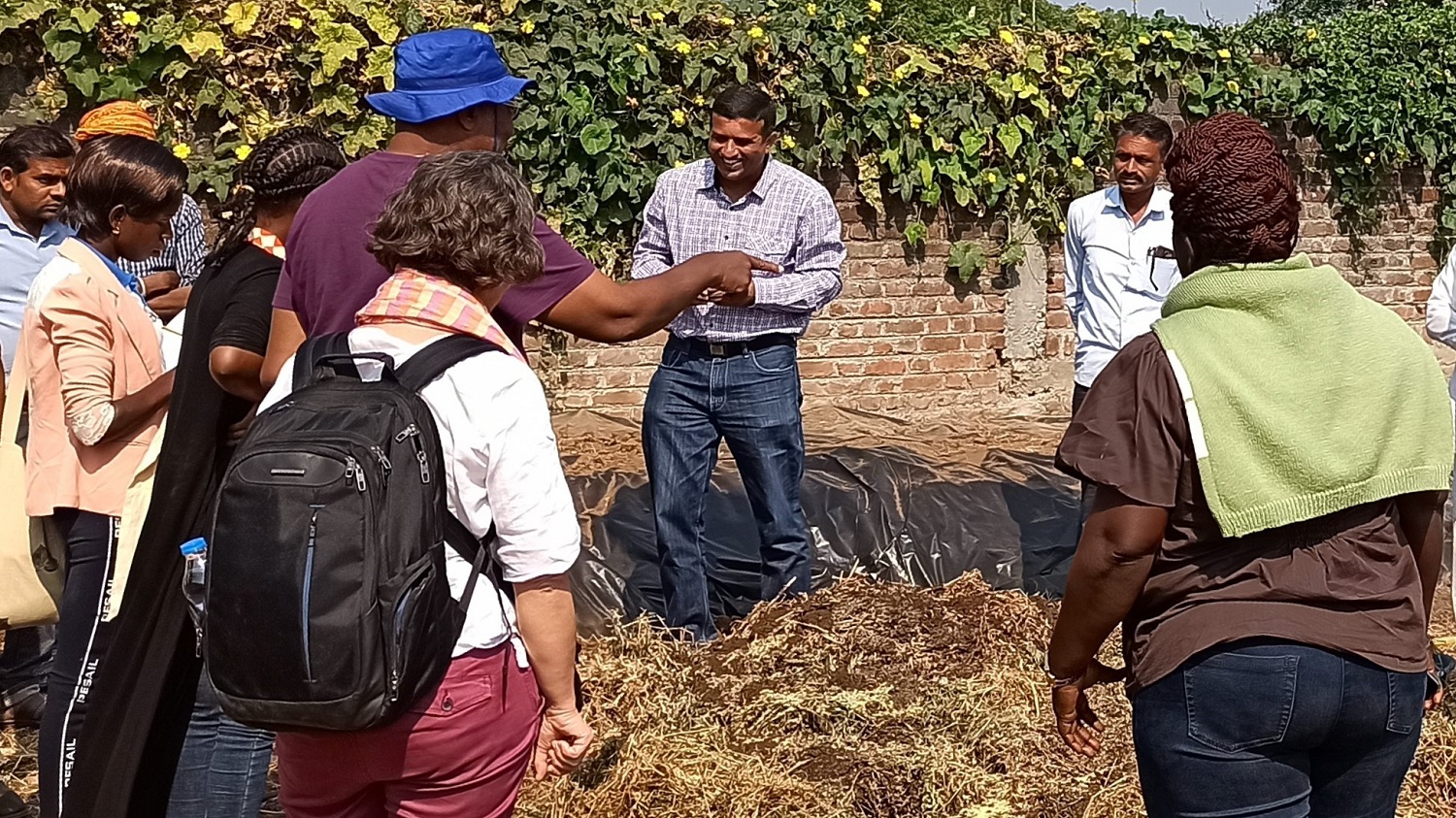
Meeting farmers and making compost. Credit: Atalo Belay, PAN Ethiopia
Choosing the best seeds
A trip to the Pratibha Centre for Seed Selection and Breeding provided the teams with some refresher training on seed selection practices and the potential impact of seed type and quality on yield, resilience to climate and disease challenges, as well as suitability for organic production systems. A visit to a hybrid cotton field gave them the chance to discuss the characteristics and relative merits of several cotton varieties.
Touring the factory
Finally, they were able to witness all the steps involved in making a piece of clothing from ginning, spinning, weaving and dyeing to the printing, cutting and sewing of a garment. Despite spending hundreds of hours in the field crafting the skills of growing cotton sustainably, many members of the teams had never seen the journey cotton takes after harvesting.
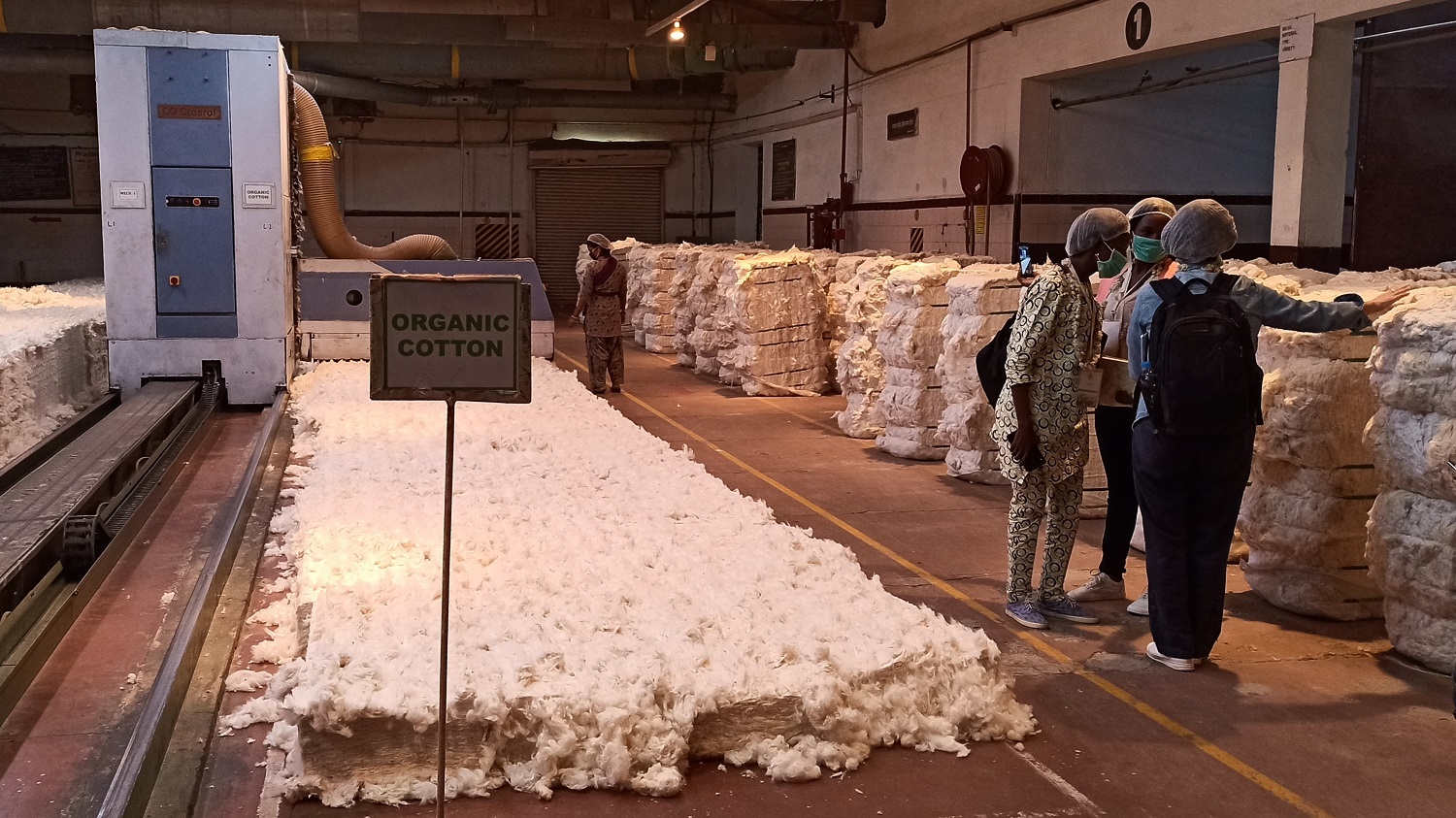
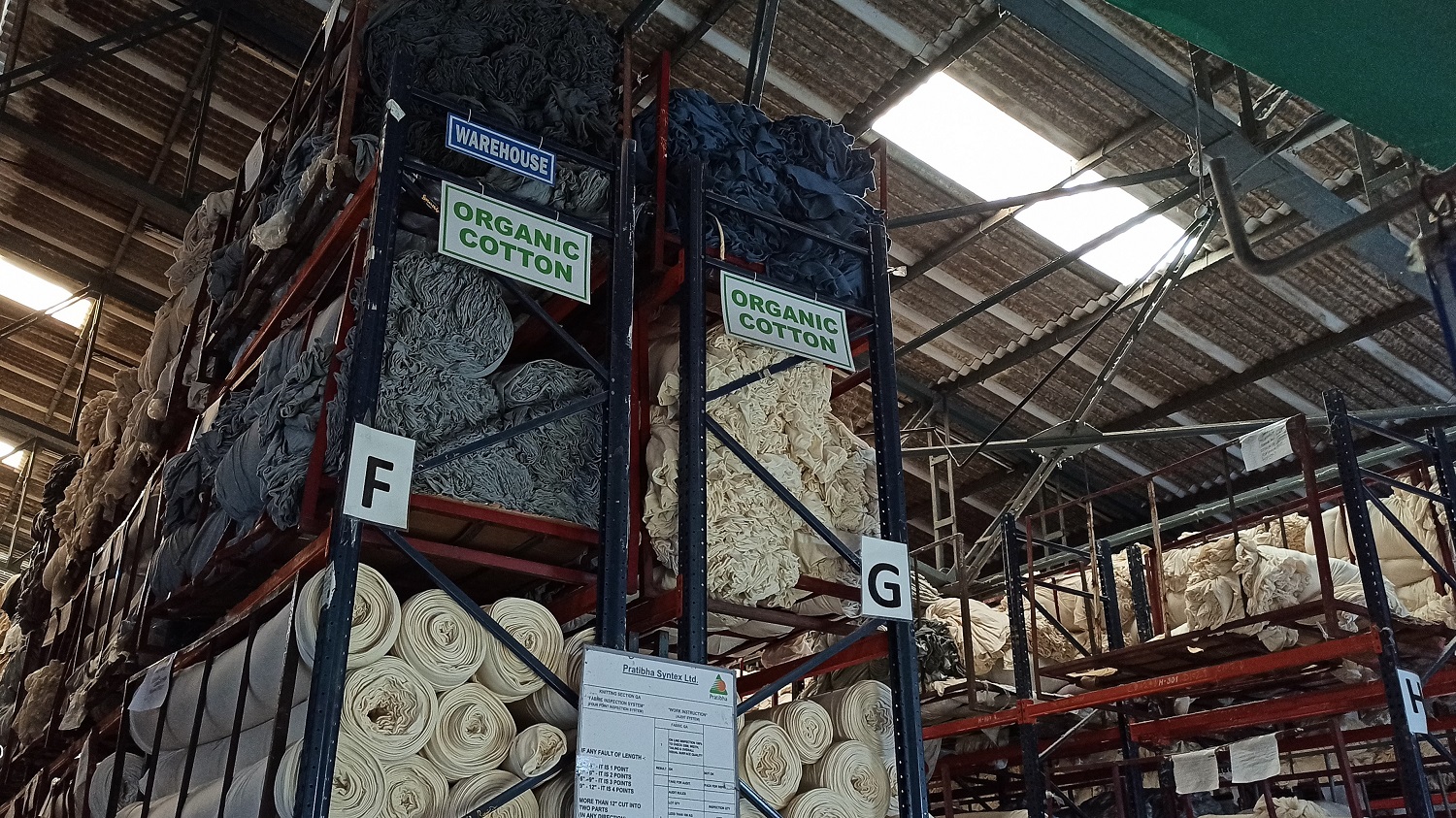
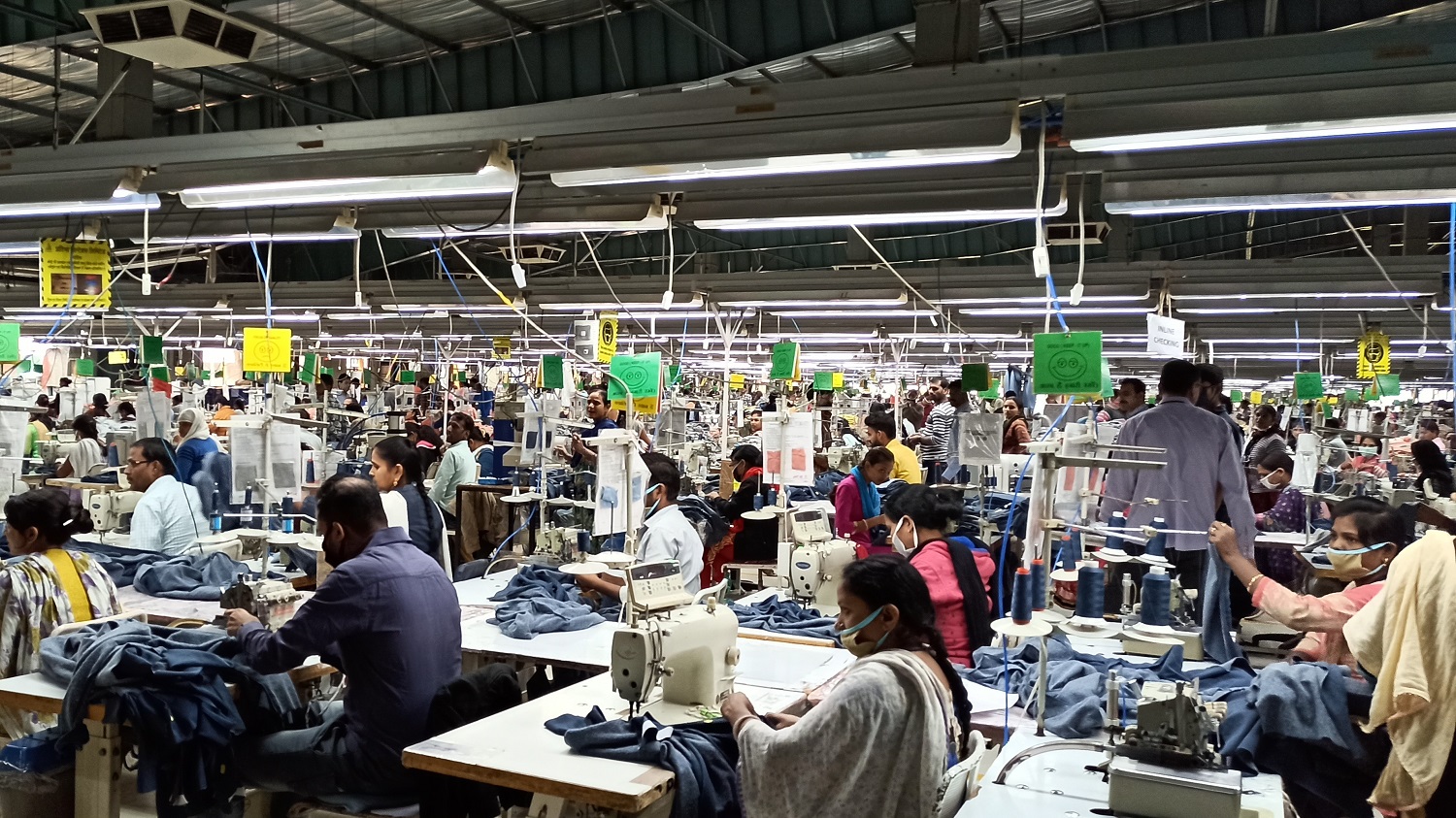
OPEPAB and PAN Ethiopia following the garment production chain at Pratibha Syntex Ltd. Credit: Atalo Belay, PAN Ethiopia
Going home inspired
Everyone left feeling inspired to return to their home countries and share their experience with the many farmers that they work with on a daily basis. The teams feel that farmers understand the importance of organic farming systems when they have access to very practical training and shared experiences. They also need better access to markets that reward them adequately for growing quality organic cotton. We can all do more to encourage retailers to support farmers by buying sustainably-grown cotton.
“If more businesses followed the strategies of Pratibha Syntext Ltd globally, the future of the organic cotton sector would look very bright”
Zemenu Genet, Project Assistant, PAN Ethiopia
PAN UK has been working for many years in the cotton communities of Benin and Ethiopia to promote sustainable alternatives to hazardous pesticides, improve food security and empower women and girls. In Benin, we work alongside the Benin Organisation for the Promotion of Organic Farming (OPEPAB), an NGO founded in 1996, while in Ethiopia PAN UK works in collaboration with PAN Ethiopia.
The Organic Cotton Summit was organised by Organised by the Organic Cotton Accelerator (OCA), C&A Foundation and Solidaridad Asia.
With thanks to Pratibha Syntex Ltd for hosting us, and to TRAID for their generous support.
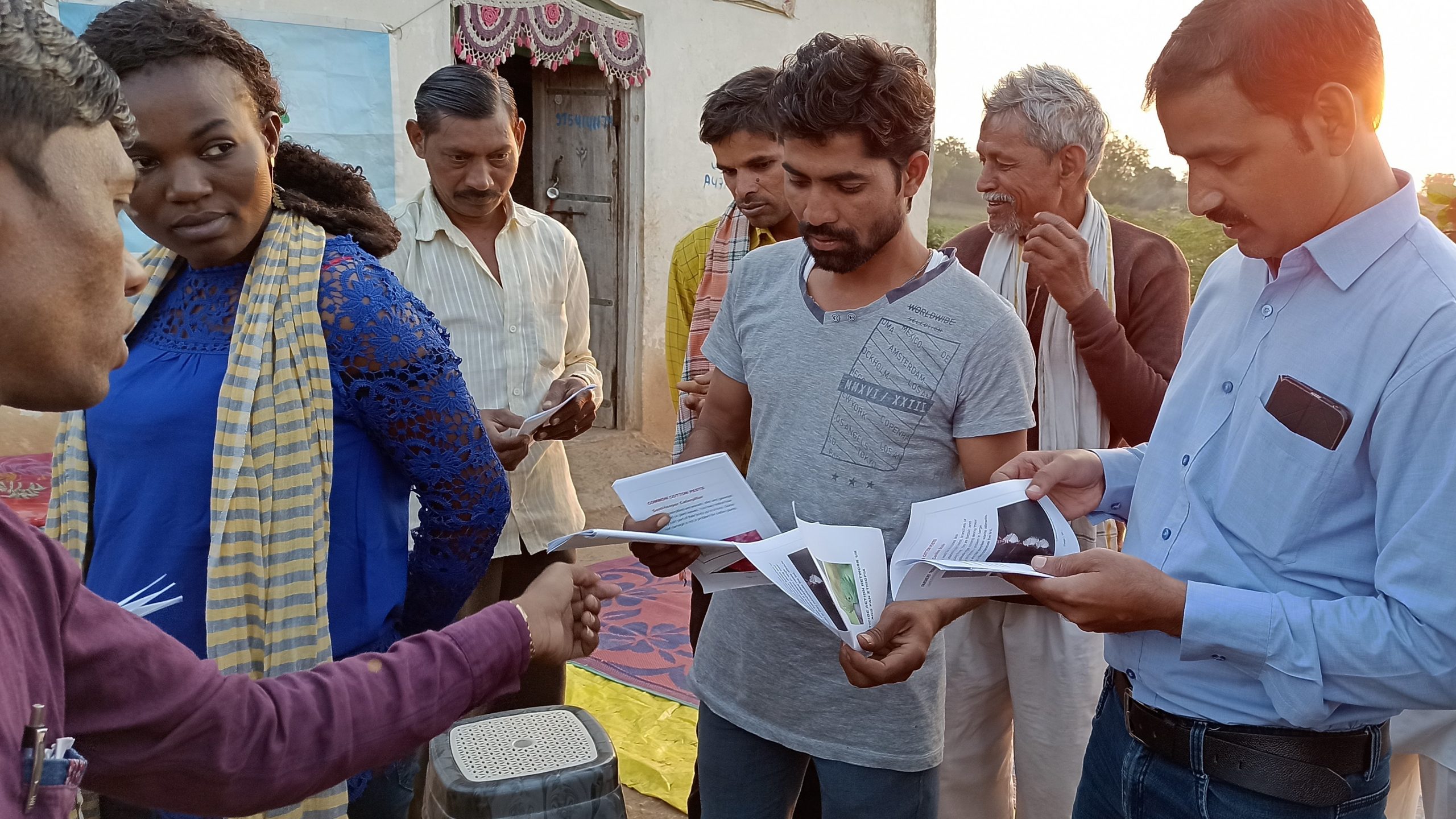
Sharing PAN UK’s guide to insects in cotton farming with local organic farmers. Credit: Atalo Belay, PAN Ethiopia

